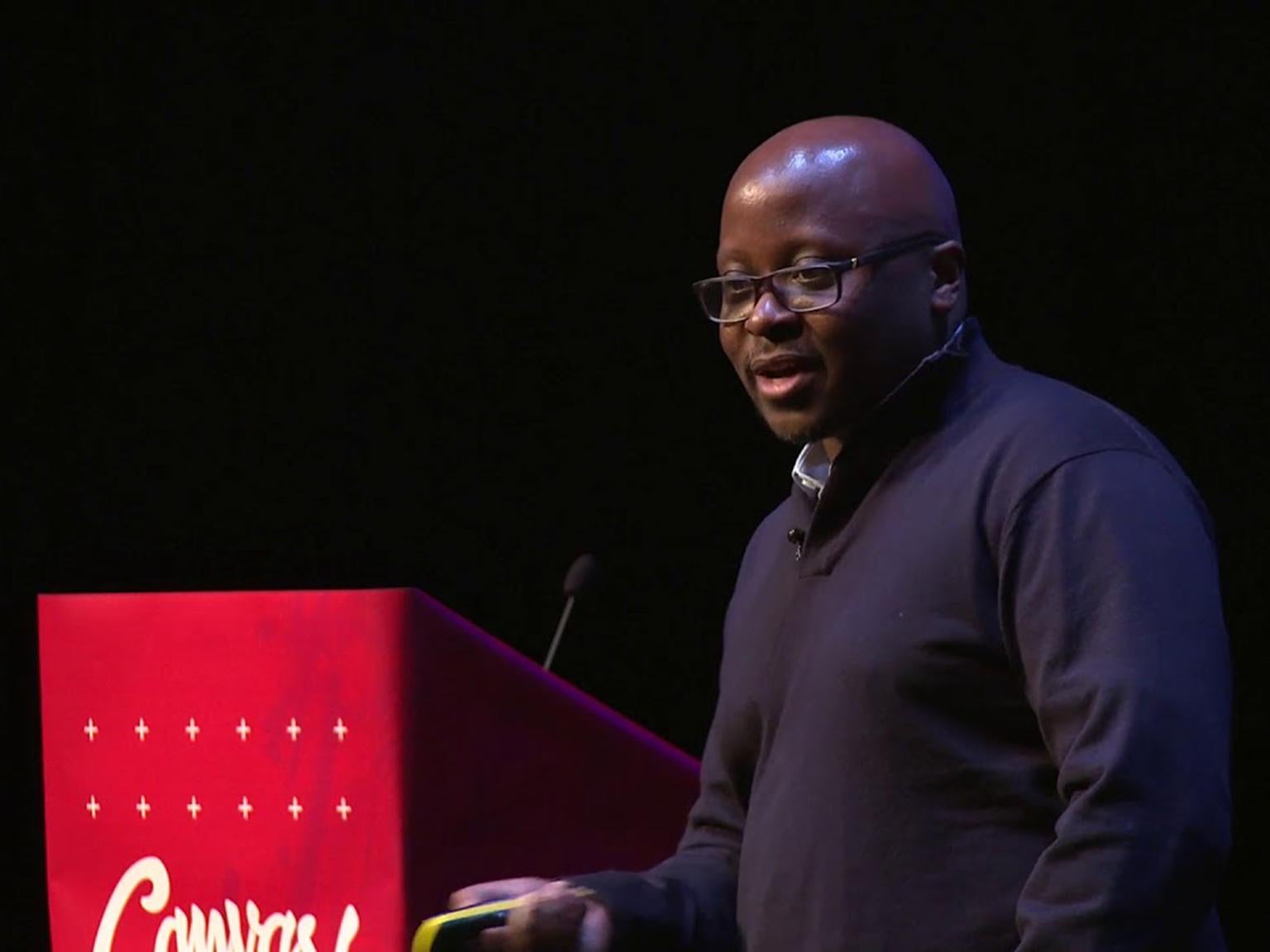The Ugandan data scientist curing our fear of artificial intelligence
Zlata Rodionova talks to Mike Bugembe about why we shouldn’t worry about robots taking our jobs


Many people are afraid of artificial intelligence and how it could change the world. They’re afraid of robots taking our jobs, companies infringing our privacy and even intelligent machines turning against us and wiping out humanity – a la SkyNet, the computer system gone rogue in Terminator.
But Mike Bugembe, a data scientist, consultant and author, is on a mission to show how data can have a positive social and financial impact on organisations. As the former chief of analytics at JustGiving, he developed a series of algorithms that resulted in over £20m in extra donations in just a year and was later part of the team that sold the company for £95m.
He told The Independent: “We live in an increasingly machine-driven world. So you’ve got to understand how this stuff works and future-proof your organisation. I love the fact that I can remove that fear people have of AI and I can help them really see the value of it and become excited about it. I help leaders understand how they can be part of the picture instead of being replaced by machines.”
Born in Uganda, Bugembe’s mother was a mathematician and his father was an economist. He describes himself as “a curious child” who took toys apart to understand how they were made. Perhaps more significantly, he also taught himself how to write software before turning 10.
“I wrote my first game when I was nine years old. I copied one of those quizzes from a magazine that could determine your age and then I coded it into the machine,” he tells me. “Where I am from, people would say coding is like ‘witchcraft’ but I loved that it gave me the ability to make and create things.”
He went on to study electronic engineering at Nottingham University, where he wrote his final thesis about an imaginary optical measurement device that uses mathematics and data to determine the causes of a car accident. “It was a Minority Report-inspired kind of device,” he says.
Bugembe began his career as a consultant at Accenture in 2002, before taking a job at De Beers, helping the world’s largest diamond company make the most of its data as its head of business intelligence.
In 2009, he completed an MBA at Cranfield University and he was working at Expedia as head of management information systems when an opportunity to work at JustGiving arose.
“JustGiving hadn’t exploited the value of their data. It was a greenfield project, meaning that we could essentially build anything our imagination could come up with, provided that we were aligned to the mission of the organisation – growing the world of generosity,” he explains. “I love to create, so this position essentially allowed me to work in an area I’m passionate about – data, machine learning and intelligence – but the twist was that it allowed me to do it with a social purpose.”

During his time as chief analytics officer from 2010 and 2018, his mission was to use the company’s data to better match people to the causes they are passionate about thus, generating more donations.
“Spotify has been successfully using that same principle for music. It would let you discover what your friends listen to and more recently it introduced a feature predicting a listener’s taste based on their music preference so that they can help their users discover new music. With JustGiving we were doing something similar by letting users discover all the amazing things people did around them and have an easier access to the things they were interested in.”
I wrote my first game when I was nine years old. I copied one of those quizzes from a magazine that could determine your age and then I coded it into the machine. Where I am from, people would say coding is like ‘witchcraft’ but I loved that it gave me the ability to make and create things
In eight years, he grew his department from a solitary operation to a team of 14 data scientists who built a series of complex algorithms, which were very much at the centre of the company’s £95m acquisition by US-based software firm Blackbaud.
His experience at JustGiving remains the proudest of his career to this day. “You have to understand that when you’re working on machine learning and AI, it can often appear as a threat to many people in their jobs. For example, you’ll have a marketing team whose job it is to send emails to increase the number of people who respond to a specific campaign – that’s a task machines can do very well.
“We needed to educate people and it took a lot of work to successfully deliver algorithms that generated real value for the business.”
After his success at JustGiving, Bugembe came to realise that every company executive should be well versed about AI before they can effect any meaningful change.
He spoke to experts at big tech companies including Facebook and Google to understand why organisations and leaders were not making the most of the data and how to change that. The answers formed the basis of his book – Cracking the Data Code.

“I’m struggling to find an area where machine learning can’t help an organisation. Research will show you that organisations, as well as individuals who have found a way to work with and implement artificial intelligence, will have greater productivity and significantly increased efficiency,” he says. “Machines can predict what is going to happen or what certain groups of people would do better than us, they can also do a lot of our automated tasks and help us save time.”
Despite his enthusiasm about data and technology, Bugembe does admit that the reality is some jobs will disappear in the process, while others will become irreplaceable. “Jobs that require emotions like compassion will be less impacted, it’s very difficult to integrate these emotions into code. I also think that in the end AI will bring and create more jobs than it takes away, just like the internet did in its time. We just can’t think about it or imagine it now.”
Today he coaches and educates senior executives, product managers and founders through his company Lens.ai. “The biggest thing that we are missing is educating non-technical users around what AI is, how it works, where you can add value within your business and how you go about building your own strategy from it,” he tells me. “People are still afraid of it and tend to delegate these to their technical teams instead of becoming proper experts and it’s hard to lead a company if you don’t have a grasp of what your own data can do.”
His recommendation for anyone starting or growing a business today is simple – try to integrate AI as part of your strategy or understand how it can contribute to your business. “Ignoring it would be the same as ignoring the internet and not building a website for your business three years ago,” Bugembe says.
As a father-of-three, he also wants his children to be able to work and navigate in a machine-driven world. This motivated him to start a new project – Future Tech Heroes – a school where children and teenagers will be able to learn about machine learning and coding, with lessons due to start in 2020.
“We need to educate our children in a way that they can navigate what I believe is going to be a very different landscape. With Future Tech Heroes we are hoping to do a bit more of that.”
Bugembe might be passionate about machine learning and coding but at home, the rules remain strict and simple – “We are quite intentional about having human family time. There will be no phones at the dinner table. We’re trying to educate our children and ensure that we are really strong when it comes to connectivity and creativity when we’re spending time together or with other people.”
Join our commenting forum
Join thought-provoking conversations, follow other Independent readers and see their replies
Comments
Bookmark popover
Removed from bookmarks